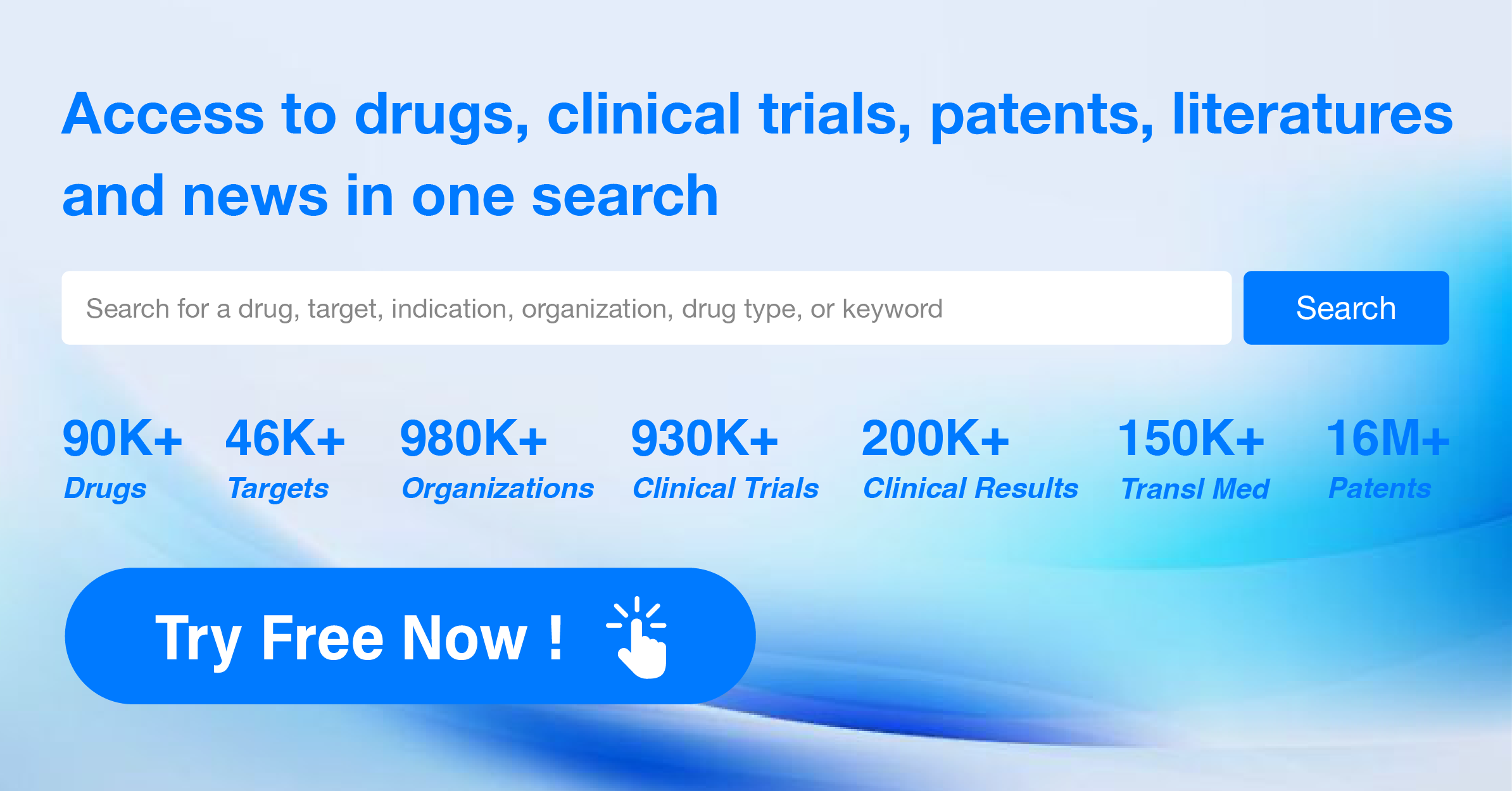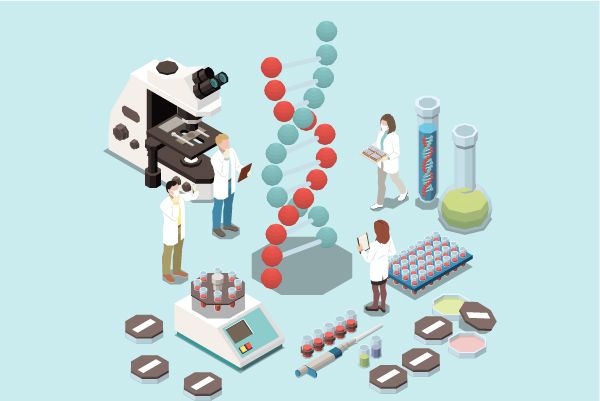Pharma Frontiers: Daily Digest of Global Pharmaceutical News – Jul 31
1.Alpha Cognition's Alzheimer's Oral Therapy Zunveyl Approved by FDA
On July 30, Alpha Cognition announced that the U.S. FDA has approved Zunveyl (benzgalantamine) for the treatment of mild to moderate Alzheimer's Disease (AD). According to the press release, this is the second oral AD therapy approved in over a decade. Alzheimer's Disease is a progressive disorder, with symptoms of dementia worsening gradually over several years. In the early stages, memory decline is mild, but in the later stages, patients may lose the ability to converse and respond to their surroundings. After diagnosis, AD patients have an average lifespan of 4 to 8 years, though this can extend up to 20 years depending on various factors. One challenge in AD treatment is poor drug tolerance, which can affect patient adherence to therapy. Data indicates that 55% of AD patients discontinue medication after one year, primarily due to gastrointestinal side effects and insomnia. Discontinuation presents health risks for patients and burdens caregivers, medical staff, and nursing home personnel.
Zunveyl (formerly known as ALPHA-1062) is a prodrug of galantamine and functions through a dual mechanism of action. As an Acetylcholinesterase Inhibitor (AChEI), Zunveyl is believed to work by preventing the breakdown of acetylcholine, a crucial neurotransmitter involved in memory, motivation, and attention functions in the brain. It also acts as an allosteric enhancer of α-7 nicotinic acetylcholine receptors and α4β2 receptors, promoting the release of acetylcholine from presynaptic neurons. Since its FDA approval in 2001, galantamine has accumulated extensive and positive long-term efficacy data, showing activity across multiple brain receptors, anti-inflammatory effects, as well as associations with improved memory, attention, and a significant reduction in mortality risk. Compared to other AChEI drugs, this therapy has a strong impact on cognitive decline in patients and shows potential for significantly reducing the risk of progression to severe dementia.
2.NewAmsterdam Pharma Announces Positive Topline Results from Pivotal Phase 3 Trial of BROOKLYN
On July 30th, NewAmsterdam Pharma announced positive topline results from its pivotal Phase 3 BROOKLYN clinical trial. The trial was designed to assess the efficacy of the investigational CETP inhibitor obicetrapib as an adjunct therapy in adult patients with heterozygous familial hypercholesterolemia (HeFH). These patients had not achieved optimal low-density lipoprotein cholesterol (LDL-C) control despite receiving maximal tolerated doses of lipid-lowering treatments. The analysis indicated that the trial met its primary endpoint, showing that obicetrapib significantly reduced LDL-C levels in patients, with the effect sustained up to one year.
BROOKLYN is a 52-week, randomized, double-blind, placebo-controlled global Phase 3 study evaluating the efficacy and safety of 10 mg obicetrapib as an adjunct therapy in HeFH patients whose LDL-C levels were not adequately controlled on maximal tolerated lipid-lowering treatments. A total of 354 patients were enrolled and randomized in a 2:1 ratio to receive daily oral 10 mg obicetrapib or placebo. The results demonstrated that the trial achieved its primary endpoint, with the obicetrapib group showing a 36.3% least squares (LS) mean reduction in LDL-C relative to placebo on day 84 (p<0.0001). The drug's effect persisted, with a 41.5% LS mean reduction in LDL-C observed in the obicetrapib group on day 365 (p<0.0001). Additionally, significant statistical improvements were noted in other biomarkers such as high-density lipoprotein cholesterol (HDL-C), non-HDL-C, lipoprotein (a), and apolipoprotein B (ApoB), consistent with previously published clinical trial data from the company.
3.Ventyx's Allosteric TYK2 Inhibitor VTX958 Fails in Phase II Trial for Crohn's Disease
On July 29th, Ventyx Biosciences announced that its allosteric TYK2 inhibitor, VTX958, did not meet the primary endpoint in a Phase II study involving patients with moderate to severe active Crohn's disease. Ventyx plans to conduct further analysis of the existing data and does not intend to proceed with additional clinical trials. The Phase II study enrolled 109 participants who were randomized to receive either 225mg or 300mg (twice daily) of VTX958 or a placebo, followed by a two-week induction treatment and an extended treatment period. The primary efficacy endpoint was the change in the Crohn's Disease Activity Index (CDAI) score from baseline at week 12, while a key secondary endpoint was endoscopic remission, defined as a 50% reduction in the Simple Endoscopic Score for Crohn's Disease (SES-CD). However, the study did not achieve its primary endpoint, which was the change in CDAI score from baseline at week 12 across the different doses of VTX958. Ventyx attributed this outcome to higher than expected response in the placebo group. For secondary endpoints, endoscopic remission was observed in both the 225mg and 300mg dose groups, showing dose-dependency (p-values <0.05 and <0.01, respectively). Additionally, compared to placebo, both doses of VTX958 demonstrated greater reductions in two key inflammatory biomarkers—C-reactive protein and fecal calprotectin. The drug was well-tolerated with an overall safety profile consistent with previous studies.
4.Pumis Biotechnology Granted Implied Clinical Trial Authorization for CLDN18.2/4-1BB Bispecific Antibody
On July 30th, according to the CDE official website, Pumis Biotechnology's CLDN18.2/4-1BB bispecific antibody, PM1032 injection, received implied clinical trial authorization. It is intended for use in combination with chemotherapy to treat locally advanced/metastatic pancreatic cancer. PM1032 is a conditionally active 4-1BB agonist that can induce the activation of the CLDN18.2 dependent and specific 4-1BB signaling pathway in tumors highly expressing CLDN18.2. This enhances the activity of T cells in the tumor microenvironment and induces the generation of tumor antigen-specific memory T cells. Additionally, the unique binding site of 4-1BB and modifications to Fc maximally reduce the activation of T cells in CLDN18.2 negative environments, significantly lowering systemic toxicity. PM1032 is currently undergoing Phase I/IIa clinical trials in China to evaluate the tolerability, safety, pharmacokinetics, and preliminary efficacy of PM1032 injection in subjects with advanced solid tumors. At the 2022 AACR conference, it was reported that PM1032 led to the regression of various tumor xenografts and generated immune memory; cured mice rechallenged with the same tumor cells did not develop tumors. Repeated dose toxicity tests in cynomolgus monkeys showed good safety and tolerability at the highest dosage of 150 mg/kg. At the 2024 ASCO annual meeting, the latest research data on the first-in-human Phase I/II safety and preliminary efficacy of PM1032 in patients with advanced solid tumors was disclosed.
5.Boehringer Ingelheim Acquires Potential "First-in-Class" Anti-Cancer Small Molecule in $1.3 Billion Deal
On July 30th, Boehringer Ingelheim announced the acquisition of Nerio Therapeutics for a total sum of up to $1.3 billion, securing its innovative preclinical project on small molecule inhibitors for protein tyrosine phosphatases N1 and N2 (PTPN1 and PTPN2). Boehringer Ingelheim plans to develop this project as a potential core element of its immuno-oncology portfolio with the aim of enhancing treatment outcomes for cancer patients. Nerio Therapeutics is a pharmaceutical development company specializing in targeting phosphatases, which are a highly potential yet challenging class of therapeutic protein targets. The novel, potent, potential "first-in-class" small molecules developed by Nerio selectively inhibit PTPN1/2, both of which play roles as immune checkpoints. Inhibiting PTPN1/2 sensitizes tumors to pro-inflammatory signals and enhances patient's immune functions, enabling the immune system to fight cancer cells. Current immune checkpoint inhibitors have revolutionized cancer treatment; however, while effective for some patients, they do not benefit all. Boehringer Ingelheim is committed to changing this situation. Nerio’s small molecule inhibitors will be a significant addition to Boehringer Ingelheim’s product line, with potential for use as both monotherapy and in combination with various cancer therapies being developed internally by the company.
6.Over $7 billion! GSK collaborates with Flagship to develop 10 innovative drugs and vaccines
On July 29th, GlaxoSmithKline (GSK) announced a collaboration with the prominent biopharmaceutical venture capital firm, Flagship Pioneering. More than 40 biopharmaceutical companies under Flagship will form a "consortium" to collaborate with GSK in developing 10 new drugs and vaccines. The collaboration will begin with respiratory diseases and immunotherapies, and will expand to other disease areas in subsequent phases. According to the terms of the agreement, GSK and Flagship will jointly contribute $150 million for initial exploratory projects, aiming to develop 10 innovative drugs or vaccines. For each product, GSK will provide an upfront payment of $720 million covering R&D, commercial milestones, preclinical funding support, and a specific percentage of sales royalties, with total expenditures anticipated to exceed $7 billion.
Flagship has been particularly active in the pharmaceutical and medical technology sectors over the past two years, gradually establishing a vast ecosystem of original innovation and translational capabilities. Similar to this collaboration, in July 2023, Flagship announced a partnership with Pfizer, where both parties contributed $50 million each as an upfront payment for the development of 10 innovative drugs, with Pfizer commiting up to $700 million in milestone payments per product, totaling an estimated $7 billion. In June this year, Flagship announced that it had initiated the first of its many collaborative projects - the development of a new generation of weight-loss drugs. Also in the field of obesity, in May this year, Metaphore Biotechnologies, a company founded by Flagship, announced a collaboration with Novo Nordisk to develop next-generation obesity treatments, totaling up to $600 million. In July, Flagship completed a $3.6 billion fundraising, anticipated to support the establishment and growth of 25 breakthrough companies in human health, sustainability, and artificial intelligence, with about half already in the planning stages.
How to obtain the latest research advancements in the field of biopharmaceuticals?
In the Synapse database, you can keep abreast of the latest research and development advances in drugs, targets, indications, organizations, etc., anywhere and anytime, on a daily or weekly basis. Click on the image below to embark on a brand new journey of drug discovery!




